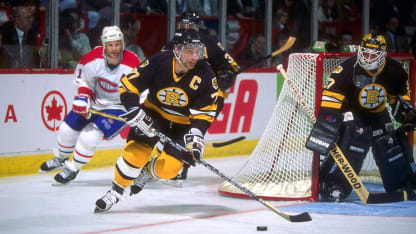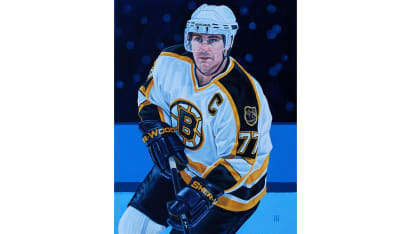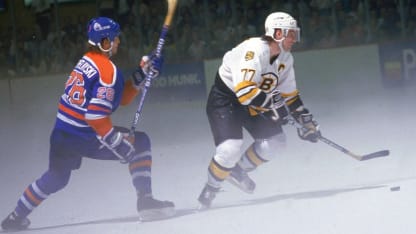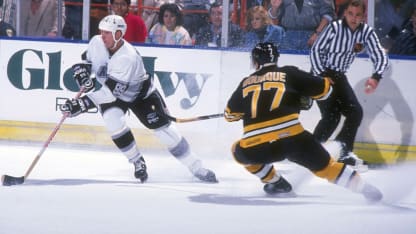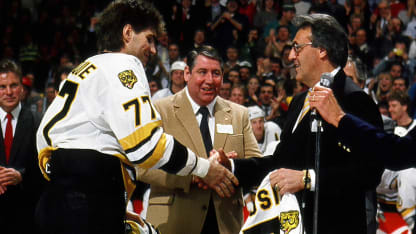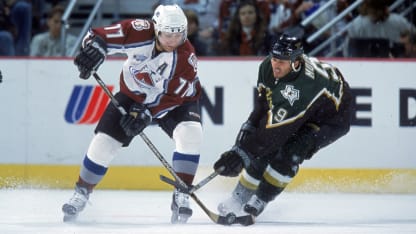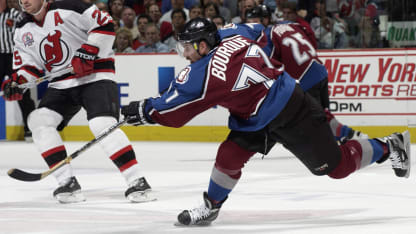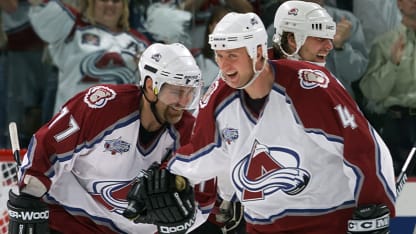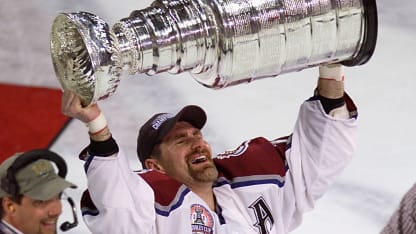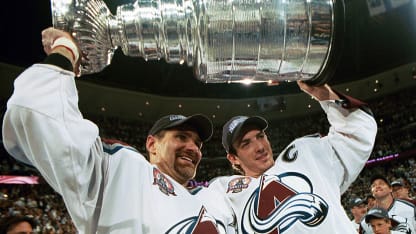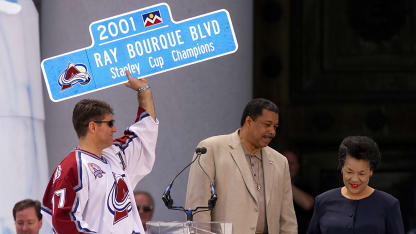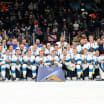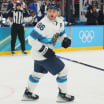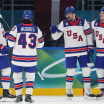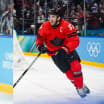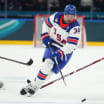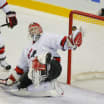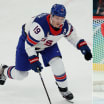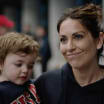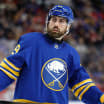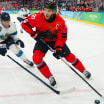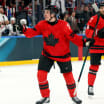The Avalanche forced Game 7 with a 4-0 victory at New Jersey and came home to give Bourque, a five-time Norris Trophy winner, a memorable send-off. They delivered, winning 3-1, and captain Joe Sakic then produced one of the most indelible images of Bourque's career.
After accepting the Stanley Cup from NHL Commissioner Gary Bettman, Sakic, instead of taking the customary victory lap, handed the Cup to the 40-year-old Bourque for the symbolic first twirl. An exultant Bourque, the reference point for two generations of NHL defensemen, hoisted the Cup and kissed it before breaking down in tears.
It was the moment he'd dreamed of growing up in Montreal watching players like Ken Dryden, Yvan Cournoyer, Larry Robinson, Serge Savard and Guy Lafleur bring home championships.
Reality had proven a bit more fickle than imagination.
Bourque was blessed with a hard shot, could skate like the wind and make pinpoint passes out of the defensive zone. On June 26, 2001, he retired with the most goals (410) and points (1,579) by a defenseman in NHL history.
Bourque's career overlapped with those of many stellar defensemen, including Robinson, Paul Coffey, Chris Chelios, Denis Potvin, Brian Leetch, Scott Stevens, Al MacInnis, Chris Pronger, Rob Blake, Nicklas Lidstrom and Scott Niedermayer.
But he remained the gold standard.
